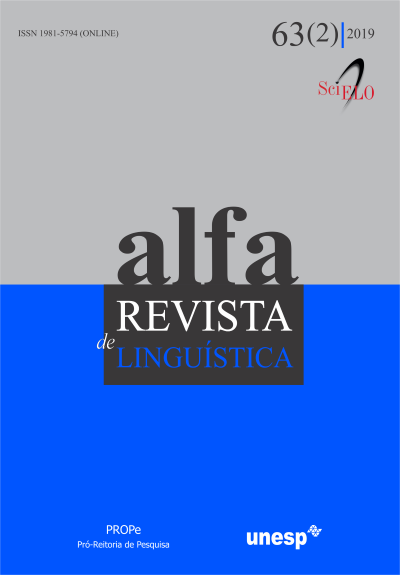Negative expressions in the speech of one Brazilian and one French child. Functions and prosodic characteristics
DOI:
https://doi.org/10.1590/1981-5794-1909-5Keywords:
Language Acquisition, Negation, Portuguese, French,Abstract
This work is a longitudinal study of two children, one Brazilian and the other French. It focuses on the development of the expressions of negation in their early speech. It aims at showing that, in the beginning, gesture and vocalization are indissociable and they are provided with meaning through the other’s interpretation. We call those expressions “protonegation”. The functions of the first negative particles uttered by the children are based on the socio-pragmatic classification system of negation developed by Beaupoil-Hourdel (2013). The following categories are considered: rejection/ refusal; failed expectations; absence/ disappearance; prohibition/command; opposition/correction; negative pleading; epistemic negation; functional negation. The results show that rejection/ refusal was the first function to emerge in the speech of both children whereas absence/disappearance was rather late.. The progressive complexity of the negations may be dependent on, the introduction of personal pronouns in the child´s utterances, and on more syntactic and lexical complexity, independently of the target language. On the other hand, actions and vocalizations by the children contribute to the delimitation of a meaningful whole, even with a rather restricted lexicon.
Downloads
Downloads
Published
How to Cite
Issue
Section
License
Manuscripts accepted for publication and published are property of Alfa: Revista de Linguística. It is forbidden the full or partial submission of the manuscript to any other journal. Authors are solely responsible for the article's content. Translation into another language without written permission from the Editor advised by the Editorial Board is prohibited.

